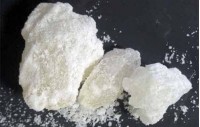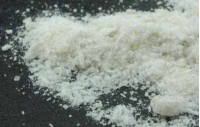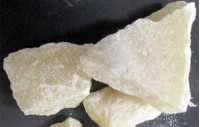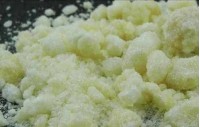Buy JWH-210, JWH-018, JWH-250 for sale online - USA vendor

- FREE shipping, 6-7 days delivery time
- Inner sending exist.
The main payment option is Bitcoin. As extra ways WU, MG.
We alwayse provide FREE samples of Top products with the main order.
Loyalty program exist, second order will be - 5%OFF
Safely work only with us! We provide - re-shipment guarantees.
Here you'll discover unused lawful items of immaculate quality.
Some time recently purchase if you don't mind make beyond any doubt that the items beneath your curiously are lawful in your country.
We do not offer a pharmaceutical items or beneath control items.
How to Buy JWH Research Chemicals Online Safely and Conveniently
JWH research chemicals, including popular compounds like JWH-018, JWH-073, and JWH-250, have gained widespread attention among researchers and enthusiasts alike. Known for their unique properties and utility in various studies, these chemicals come in diverse forms such as powder, liquid, and sprays. For those looking to buy research chemicals online JWH, it’s essential to understand the benefits, find trusted vendors, and know the forms available. This blog post will guide you through the key aspects of purchasing JWH chemicals while ensuring safety and reliability.
Benefits of Buying JWH Chemicals Online
1. Wide Selection of Research Chemicals
One of the biggest advantages of shopping for JWH-018 for sale, or any JWH compound, is the sheer variety of options available online. Vendors typically stock multiple forms, including JWH powder, JWH-018 liquid for sale, and JWH-018 spray for sale. Whether you're looking to buy JWH-073, buy JWH-250, or even buy JWH-210 online, online shops often have an extensive inventory to meet different research needs.
2. Convenient Purchasing Process
Buying online eliminates the hassle of visiting physical stores. You can simply order from the comfort of your home. Whether you're searching for JWH-018 chemical for sale, JWH-018 powder for sale, or purchase JWH-018 online, most vendors provide user-friendly websites and direct delivery options. This level of convenience allows you to focus more on your research and less on the logistics.
3. Discreet Shipping and Packaging
Privacy is a significant concern for many researchers. Fortunately, when you buy JWH online, most reputable vendors take every measure to provide discreet packaging and ensure your personal details are secure during the transaction process. Whether you're purchasing JWH-018 powder buy or looking for bulk options like JWH powder for sale, your shipment will often arrive securely without any identifying labels.
4. Competitive Pricing
Online stores often offer competitive rates compared to local suppliers. For example, if you're searching for JWH-018 for sale online or JWH 018 liquid for sale, you’re likely to find deals and discounts not available elsewhere. Additionally, online buyers can take advantage of bulk purchasing discounts, especially for items like JWH-210 buy or where to buy JWH 250.
How to Find Trusted Vendors for JWH Research Chemicals
1. Check Vendor Reviews and Ratings
Before making a purchase, it's crucial to vet potential vendors. Look for reviews and testimonials from other buyers who have purchased similar products. For instance, when looking for buy JWH-018 online or JWH-073 buy, feedback from other researchers can reveal insights into quality, delivery speed, and overall customer satisfaction.
2. Confirm Product Quality and Purity
High-quality research chemicals are essential for accurate results. Be sure the vendor provides purity information, particularly for substances such as JWH-018 powder, JWH-018 spray for sale, and JWH-018 chemical for sale. Trusted vendors often include third-party lab testing results, so you know exactly what you're buying.
3. Look for Transparent Business Practices
A reliable JWH vendor provides complete transparency about the products they sell. Whether you're buying JWH-210 for sale, JWH-250 for sale, or simply searching for where to buy JWH, make sure the vendor lists detailed product information, legal compliance status, and customer support options.
4. Customer Support Availability
Strong communication builds trust. Any credible vendor offering JWH-018 buy online, buy JWH powder, or 2 cb vendor will have prompt and knowledgeable customer service. This can help address any queries, such as how to make JWH-018 powder or concerns about shipping and customs clearance.
Understanding Different Forms of JWH
JWH chemicals come in several forms to fit diverse research needs. Knowing the available options can help you make an informed purchase:
1. JWH-018 Powder
One of the most widely used forms, JWH-018 powder, is easy to store, measure, and handle. It's ideal for laboratory research and can be found through searches like JWH-018 powder for sale or JWH 018 powder buy.
2. JWH-018 Liquid
For researchers requiring precise dosing, JWH-018 liquid for sale is a suitable option. The liquid form is highly concentrated and often used in studies that necessitate exact quantities.
3. JWH-018 Spray
Offering convenient application, JWH-018 spray for sale is preferred for studies involving surface-level compounds or smaller-scale experiments. Always ensure the vendor specifies the concentration and usage guidelines.
4. JWH-073, JWH-210, and JWH-250
These compounds offer variations in structure and properties compared to JWH-018. Many researchers buy JWH-073 or buy JWH-210 to explore these subtle differences. Whether you're looking at JWH-210 buy, JWH-250 for sale, or even where can I buy JWH-250, online vendors typically provide detailed descriptions to help you choose.
Is JWH Legal? Understanding Legal Considerations
Before purchasing, it's essential to verify the legality of JWH compounds in your region. For example:
- If you're wondering, “JWH-018 buy online— is it legal?”, double-check local regulations before ordering.
- Searches for terms like JWH-018 where to buy or where to buy JWH online must align with your country’s laws regarding research chemicals.
- Specific queries, such as “JWH is it legal USA?” or "where can I buy JWH?", require careful attention to avoid legal complications.
By purchasing from reputable research chemical suppliers, you ensure compliance with local regulations, especially when buying controlled substances like JWH-018 spray for sale or JWH chemical for sale.
Tips for Safe Transactions When Buying JWH Online
- Use Secure Payment Methods
When you order JWH-018 online or purchase JWH-018 online, be sure the website offers encrypted payment gateways. Avoid sketchy platforms that lack proper security measures.
- Understand the Shipping Policy
Familiarize yourself with the vendor's shipping process when you buy JWH-210 online or look for where to buy JWH 250. A transparent policy ensures you know what to expect in terms of delivery time and discretion.
- Track Your Order
Reputable vendors often provide tracking options for products like JWH powder for sale or JWH capsules. This provides added peace of mind regarding the status of your delivery.
- Start Small
For first-time purchases of JWH-018 powder, buy JWH online, or JWH-250 buy, consider ordering in smaller quantities to verify the vendor's reliability.
Final Thoughts
Buying JWH research chemicals online offers unparalleled convenience, a wide selection, and discretion. By carefully selecting trusted vendors and verifying product quality, you can enjoy a safe and efficient buying experience. Whether you’re interested in JWH-018 powder buy, JWH-018 liquid for sale, or investigating how to make JWH-018 powder, this blog has provided you with all the tools to make informed decisions.
Remember to always adhere to regional regulations and prioritize safety. For researchers looking to buy JWH powder, buy JWH-250, or explore JWH chemical for sale, the online marketplace is a valuable resource as long as you approach it wisely.
1kg $1590
1kg $1690
500g $1080
500g $1199
1kg $1590
1kg $1690
100g $600
500g $1080
1kg $1590
1kg $1590
100g $390
500g $1390










